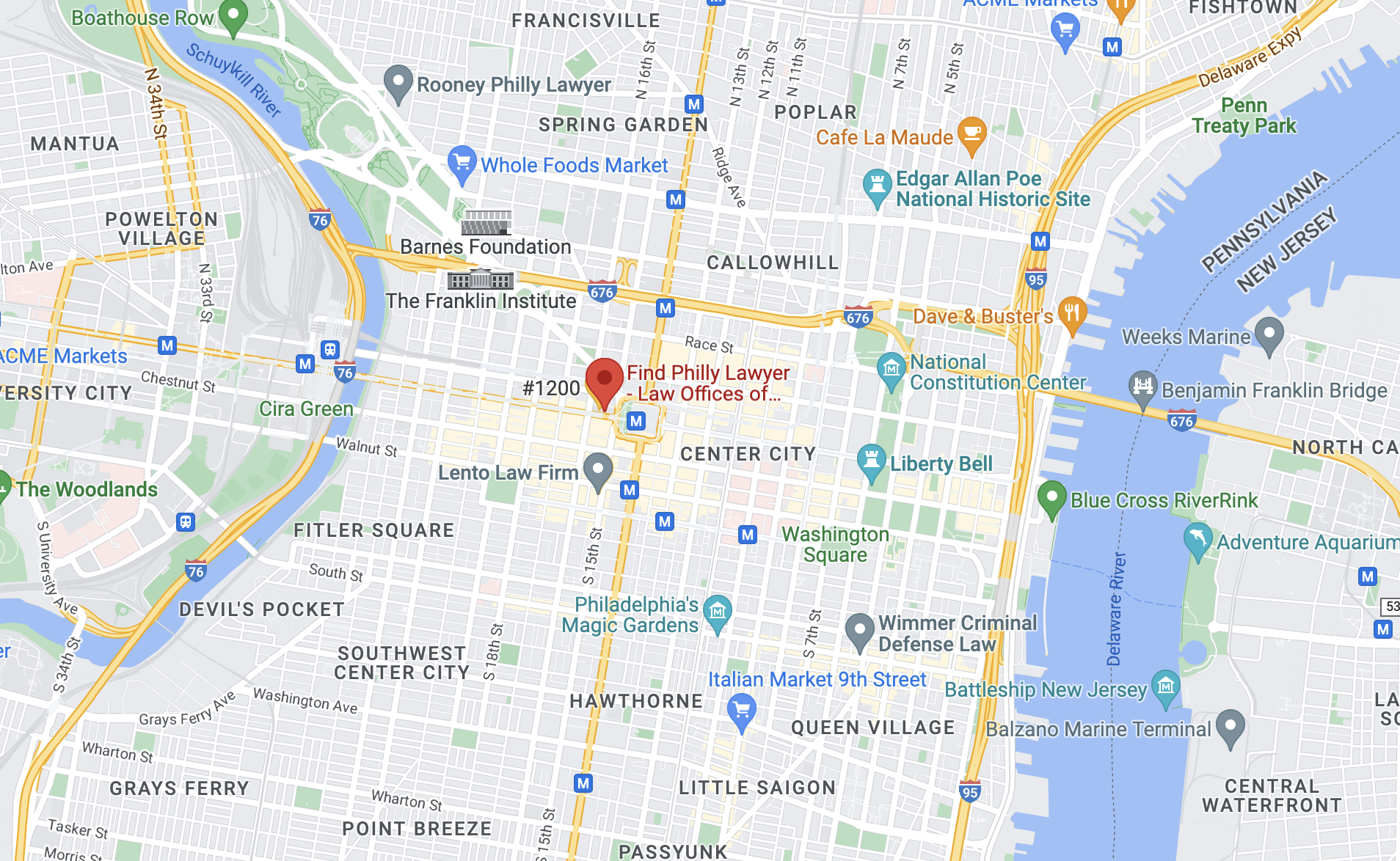If law enforcement attempts to arrest you under the belief that you committed a crime, it would not be wise to resist arrest. Resisting arrest can lead to being charged with additional criminal offenses. This is especially true if a suspect injures an officer or another party while resisting arrest. If you attend Drexel University and you were charged with resisting arrest, you should consult with an experienced resisting arrest attorney for Drexel students.
The Law Office of Lonny Fish is here to help you mount your defense against resisting arrest charges and other crimes associated with that offense. Our firm is dedicated to providing each client with the unique legal representation needed for their case. To schedule a free legal consultation, contact the Law Office of Lonny Fish at (215) 826-3314. You can also contact the firm online.
Pennsylvania Resisting Arrest Laws
Resisting arrest is a crime that is typically charged in conjunction with another offense. This means that a Drexel University student charged with resisting arrest likely had this crime added on top of another offense that law enforcement believes they committed. Knowing the elements of resisting arrest can help a person avoid any actions that could lead to this offense.
Pennsylvania defines resisting arrest as some action that is used to prevent a “public servant” from lawfully arresting a suspect or from performing another law enforcement related duty. A public servant refers to a number of law enforcement individuals. For example, a police officer or a person working in a federal or state government is considered as a public servant. Other positions that can be considered a public servant include judges and members of the General Assembly.
Preventing a public servant from completing a lawful arrest is not the only way that a person can be charged with resisting arrest. Under other circumstances, a person can also be charged with resisting arrest if their resistance results in the severe injury of a public servant, or they act in a manner that requires substantial force to apprehend them. It is important to note that the injury of a public servant could result in serious criminal charges for violent offenses like assault.
If you believe that your actions did not amount to resisting arrest, you should continue reading for possible defenses for this offense and consider speaking with an experienced Philadelphia criminal defense attorney.
Legal Defenses to Resisting Arrest by a Drexel University Student
A criminal offense for resisting arrest is not an offense you want on your criminal record, especially if you are attending a prestigious institution like Drexel University. Fortunately, there is some legal defense that can be utilized by a defendant to fight their criminal case.
The inability to comply with orders from law enforcement is one legal defense that may be used to fight an offense for resisting arrest. For example, a medical condition or mental infirmity could make it difficult for a person to comply with orders from a public servant during an arrest.
Additionally, a person cannot be charged with resisting arrest if they resist arrest from an individual that is not a public servant. For example, if a civilian attempts to restrain a person that allegedly committed a crime, the alleged offender cannot be charged with resisting arrest for evading the civilian or fighting back.
Another option is proving that the defendant was arrested for a crime they did not commit. As the defendant did not commit the crime, law enforcement’s arrest of the defendant cannot stand as a lawful arrest.
Our firm is here for you if you wish to discuss a defense strategy with an experienced attorney.
Penalties for Resisting Arrest by a College Student
Generally, in Pennsylvania, an offense for resisting arrest is graded as a second degree misdemeanor. Second degree misdemeanors impose moderate penalties in comparison to first degree misdemeanors (severe penalties) and third degree misdemeanors (minor penalties).
When a defendant is convicted of a second degree misdemeanor, they can be sentenced to a maximum of two years in prison and up to $5,000 in criminal fines.
As mentioned, if a defendant is accused of injuring a public servant during a lawful arrest, they could be charged with a crime like assault. Assault is an offense that can be graded as a felony or a misdemeanor. The grading of the offense depends on the circumstances of the crime. For example, if a public servant suffers a serious injury like a bone fracture, the offense could be graded as a felony.
Our Experienced Resisting Arrest Lawyer for Drexel Students is Here for You
If you or a family member was charged with resisting arrest as a student of Drexel University, you should contact an experienced resisting arrest attorney for Drexel students today. Philadelphia riminal defense lawyer Lonny Fish possesses a wide range of experience litigating criminal matters, and he is prepared to help you fight your case. To schedule a free case evaluation, contact the Law Office of Lonny Fish at (215) 826-3314.



 Liberty Law Team
Liberty Law Team  (215) 826-3314
(215) 826-3314 lonny@libertylawteam.com
lonny@libertylawteam.com





